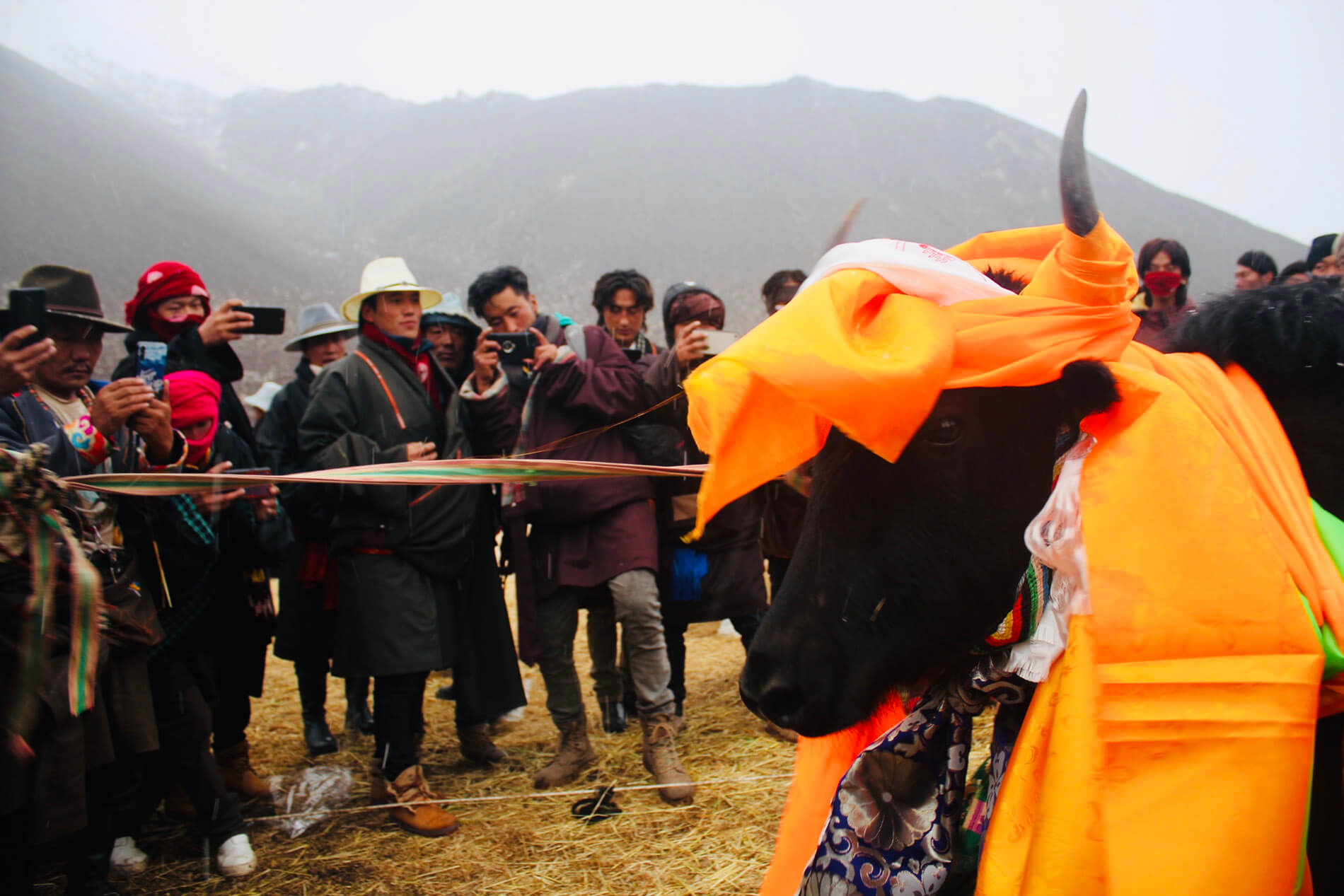The
Black Tent and the Summer Pasture
golok photovoice
Facilitated by Palden Tsering
In Amdo Tibet, animal herders always set up the
black tents on the summer pasture. It is the symbol of the pastoralists, it is
windproof, it is warm, and it is moveable.
However, with the rapid urbanization, commercialization, and with state
investment in infrastructure development, black tents are rarely seen in Lumu
village these days.
Seniors
are blaming the younger generations for the lack of the skills and the spirit
to inherit this tradition, and the younger generations are trying their best to
revitalising this tradition through different occasions such as during the
‘beauty contest.’

Village Elders are Making a Black Tent
“It
is not only the black tents that are disappearing but the traditional knowledge
toward the making of the tents. The younger generations don’t harvest yak wool anymore,
and even worse than that, they don’t slaughter their own livestock.”
Gon Jay, Golok, 2019
Gon Jay, Golok, 2019

The
only time you see the black tent is during the annual ‘beauty contest’ in the
village. The organizers recruit seniors from the village and set up a tent for
the occasion. As Tub, one of the organisers said,
‘this is a great opportunity for the kids to see the black tent because this is where their ancestors lived.’

Pastoral youths taking photos of the winner of the 'beauty contest'.
“Unfortunately, younger generations are moving away from the black tent, livestock and pastoralism. It is because of so-called social development or modernisation. However, we should define modernity in our way, there are so many things that we can learn from pastoralism, as a way of life and philosophy to deal with the uncertainties around us.”
TD, Kokonor, 2020
TD, Kokonor, 2020

The black tents are replaced by the flats in the township. Resettlement projects under the conservation and development projects of the State have pushed many herders into urban settings. Here they can stay in a flat and send their kids to the kindergarten or school nearby. However, there is no pasture for the livestock; thus, many of them need to make the choice between the future of the kids and pastoralism.